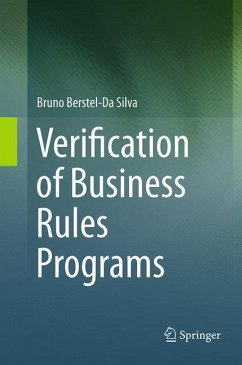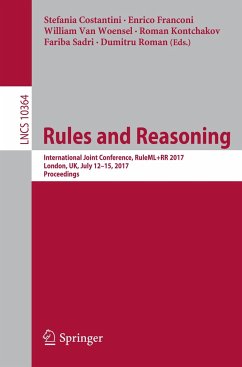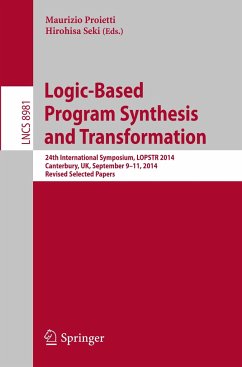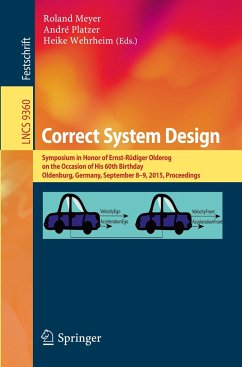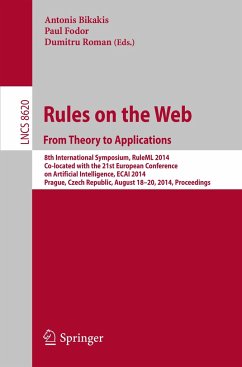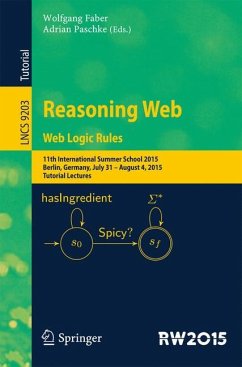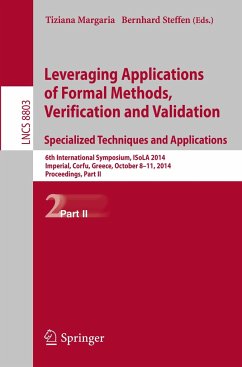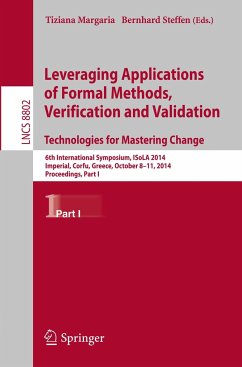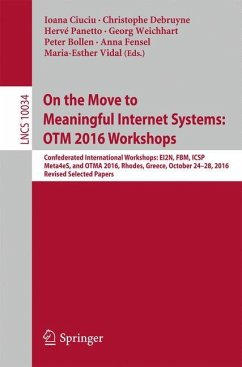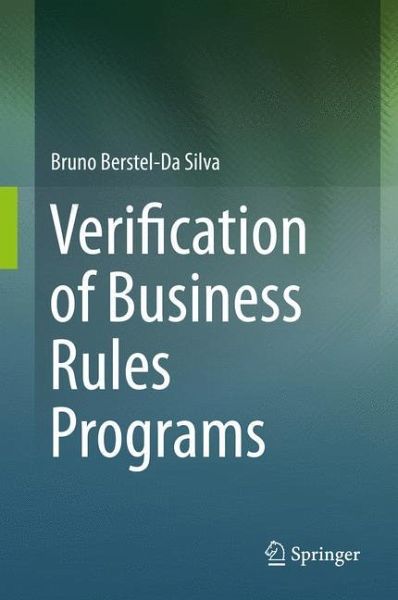
Verification of Business Rules Programs
Versandkostenfrei!
Versandfertig in 6-10 Tagen
38,99 €
inkl. MwSt.
Weitere Ausgaben:

PAYBACK Punkte
19 °P sammeln!
Rules represent a simplified means of programming, congruent with our understanding of human brain constructs. With the advent of business rules management systems, it has been possible to introduce rule-based programming to nonprogrammers, allowing them to map expert intent into code in applications such as fraud detection, financial transactions, healthcare, retail, and marketing. However, a remaining concern is the quality, safety, and reliability of the resulting programs.This book is on business rules programs, that is, rule programs as handled in business rules management systems. Its co...
Rules represent a simplified means of programming, congruent with our understanding of human brain constructs. With the advent of business rules management systems, it has been possible to introduce rule-based programming to nonprogrammers, allowing them to map expert intent into code in applications such as fraud detection, financial transactions, healthcare, retail, and marketing. However, a remaining concern is the quality, safety, and reliability of the resulting programs.
This book is on business rules programs, that is, rule programs as handled in business rules management systems. Its conceptual contribution is to present the foundation for treating business rules as a topic of scientific investigation in semantics and program verification, while its technical contribution is to present an approach to the formal verification of business rules programs. The author proposes a method for proving correctness properties for a business rules program in a compositional way, meaning that the proof of a correctness property for a program is built up from correctness properties for the individual rules-thus bridging a gap between the intuitive understanding of rules and the formal semantics of rule programs. With this approach the author enables rule authors and tool developers to understand, express formally, and prove properties of the execution behavior of business rules programs.
This work will be of interest to practitioners and researchers in the areas of program verification, enterprise computing, database management, and artificial intelligence.
This book is on business rules programs, that is, rule programs as handled in business rules management systems. Its conceptual contribution is to present the foundation for treating business rules as a topic of scientific investigation in semantics and program verification, while its technical contribution is to present an approach to the formal verification of business rules programs. The author proposes a method for proving correctness properties for a business rules program in a compositional way, meaning that the proof of a correctness property for a program is built up from correctness properties for the individual rules-thus bridging a gap between the intuitive understanding of rules and the formal semantics of rule programs. With this approach the author enables rule authors and tool developers to understand, express formally, and prove properties of the execution behavior of business rules programs.
This work will be of interest to practitioners and researchers in the areas of program verification, enterprise computing, database management, and artificial intelligence.





